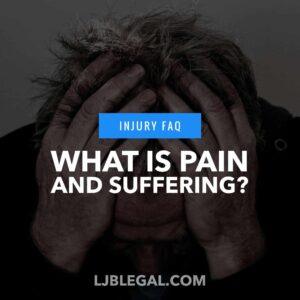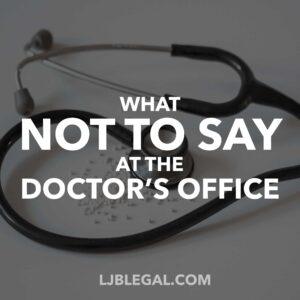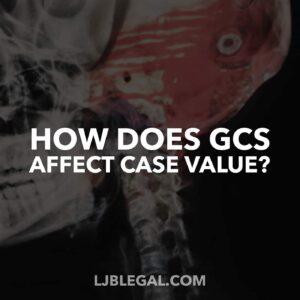
Understanding Pain and Suffering
In Louisiana personal injury cases, pain and suffering refers to the physical and emotional distress you experience after being hurt because of someone else’s negligence or wrongdoing. It covers more than just the medical bills. Pain and suffering includes the physical pain, mental anguish, daily inconvenience, and other negative effects the injury causes. These may show up as physical limitations, emotional struggles, or the loss of enjoyment of life.

When someone gets hurt, they might ask for money from the person who hurt them. This money is partly for their pain and how much they suffered. When a Louisiana personal injury lawyer helps someone ask for money for pain and suffering, it’s not just for physical hurts. It’s also for how the accident affected their mind and feelings.


We GET IT DONE
Clients trust us to handle their case properly and effectively
FREE Confidential Case Review (985) 240-9773What Does Pain and Suffering Include?
Pain and suffering is part of general damages, also called non-economic damages. These cover the personal impact of an injury that is not tied to a specific bill.
- Physical pain and discomfort such as immediate injury pain, lingering aches, spasms, or chronic conditions.
- Emotional and mental distress such as anxiety, depression, PTSD, flashbacks, or fear of driving.
- Loss of enjoyment of life such as missing family time, hobbies, or community activities you used to love.
- Humiliation and embarrassment from visible injuries, scarring, or changes in appearance that cause self-consciousness.
- Inconvenience and interference with daily life such as difficulty completing daily tasks, strain on relationships, or loss of independence.
- Lifestyle and career changes such as limits on work duties, disrupted routines, or long-term restrictions.
- Long-term impacts including permanent disability, ongoing pain, or continued emotional trauma long after the injury.


We DO THE RIGHT THING
The correct choice – always – is to do the right thing.
FREE Confidential Case Review (985) 240-9773When Can You Claim Pain and Suffering?
Pain and suffering damages are typically available in personal injury cases. However, it’s important to note that they are usually not available in:
- Breach of contract cases
- Disability cases
- Property insurance cases
To be eligible for pain and suffering compensation, you generally need to demonstrate that you’ve experienced:
- Grief
- Worry
- Insomnia
- Loss of enjoyment of life


We ARE TRANSPARENT
We don’t play games and we don’t hide the ball.
FREE Confidential Case Review (985) 240-9773How Pain and Suffering Differs from Other Damages
In a Louisiana injury case, your compensation can include both economic and non-economic damages. Understanding the difference helps you see why pain and suffering is often disputed.
- Economic damages are financial losses you can document with bills or pay records. Examples include medical bills, prescription costs, travel for treatment, medical equipment, and lost wages or reduced earning capacity.
- Non-economic damages cover the personal impact that does not appear on a receipt. Pain and suffering falls in this category, along with emotional distress, loss of enjoyment of life, and similar harms.
Because non-economic harms are intangible, they are harder to value. Courts and insurers consider the seriousness of the injury, how long symptoms last, how daily life is affected, and whether there are lasting limitations.


We ARE COMPASSIONATE
Emotionally intelligent listeners with positive attitudes.
FREE Confidential Case Review (985) 240-9773How Is Pain and Suffering Calculated?
Louisiana law does not set a single formula. Two ideas are sometimes discussed during settlement talks. These are reference points, not rules.
- Multiplier method. Medical bills are multiplied by a number that reflects severity and recovery time. For example, 1.5 to 3 for moderate injuries, higher for serious cases.
- Per diem method. A daily dollar amount is assigned for each day of pain until maximum recovery.
Real value depends on how your injuries affect your body, your mind, and your life. Courts and insurers also consider the seriousness of the injury, how long recovery takes, and the impact on your daily activities and career. An experienced injury lawyer argues for a number that reflects the full impact, not the insurer’s convenience.
How Insurers Try to Minimize These Damages
- You went back to work, so you must be fine.
- You did not see a therapist, so you cannot be struggling emotionally.
These claims ignore how recovery really works. Many people push through pain to keep life moving. Proper documentation and expert support help counter these tactics.
How Do You Prove Pain and Suffering?
Insurance companies often question or downplay non-economic harms. Good documentation helps show the truth.
- Consistent medical treatment. Keep appointments and follow care plans.
- Mental health care. Counseling or evaluations can document anxiety, depression, or PTSD.
- Simple daily journal. Note pain levels, sleep issues, and limits on work or daily tasks.
- Complete records. Save medical notes, therapy summaries, prescriptions, and work restriction slips.
Your story matters. Clear records make it easier for others to understand what you live with day to day.
At the end of the day, if you are like most people, there’s nothing you wouldn’t give to have your old, pre-injury life back again. Unfortunately, we cannot unwind the clock. Compensation for pain and suffering, however, attempts to make up for the many hardships you have endured.
Why Having a Lawyer Matters
- We gather medical and mental health records and keep them organized.
- We bring in experts when needed.
- We make sure your day-to-day struggles are clear and easy to understand.
- We push back when an insurer tries to minimize your experience.
This is something we consider in every case and in advising you on an acceptable settlement or demand amount, both before and during litigation.
Key Points About Pain and Suffering in Louisiana
Unlike medical bills or lost wages, pain and suffering is subjective. This means there is no exact number or receipt that proves what you have gone through. Instead, it depends on your unique situation, how serious your injuries are, how long recovery takes, and how your daily life has been disrupted.
Louisiana law does not provide a strict formula for these damages. Courts and insurers must look at the full picture of your life after the accident. While methods like the multiplier or per diem approach may be used as guides, the actual value depends on how clearly your pain and struggles are shown.
Because of this, documentation is crucial. Medical records, therapy notes, and even simple daily journals help connect your injury to the pain and emotional distress you experience. The stronger the evidence, the harder it is for an insurance company to downplay your suffering. To make this easier, we offer a free Injury Victim’s Diary Workbook that can help you track your pain levels, emotional struggles, and the ways your injuries affect your daily life.
Examples of Accidents That Can Lead to Pain and Suffering
- Car accidents
- Commercial truck and bus crashes
- Burn injuries and chemical exposures
- Slip and fall accidents
- Workplace injuries
Any serious injury caused by someone else’s negligence can create physical pain, emotional distress, and long-term changes in your life. These examples show how common situations often lead to claims for pain and suffering damages.
Understanding pain and suffering in personal injury cases is crucial for ensuring you receive fair compensation. While it’s not available in all types of cases, it can be a significant part of your damages in personal injury claims. By documenting your experiences and working with an experienced personal injury attorney, you can build a strong case for the full compensation you deserve.
Your pain matters. If someone caused it or made it worse, you have the right to seek fair compensation.
If you’ve been injured and are considering a personal injury claim, don’t navigate this complex process alone. Contact our experienced attorneys today at 985-240-9773 for a free consultation and learn how we can help you get the compensation you deserve for your pain and suffering.















